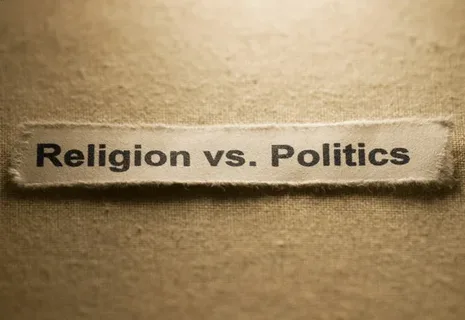
Faith and politics have always been twisted together, influencing each other in various ways throughout history. Despite being separated by five centuries, Martin Luther and Donald Trump exemplify how religious beliefs can shape political actions and vice versa, especially with the temptation of extending their reach into the other’s sphere of influence.
Martin Luther was deeply rooted in his Christian faith, which guided his actions and reforms. He believed that the Catholic Church had strayed from the true teachings of the Bible and sought to bring it back to its roots. Luther’s Ninety-Five Theses, which criticized the church’s practices, were driven by his desire to reform the church based on biblical principles. His faith was not just private; it had profound public implications, leading to significant religious and political upheaval.
Luther’s actions challenged the political power of the Catholic Church, which was deeply twisted together with the state. By questioning the church’s authority, he also questioned the legitimacy of the political structures that supported it. This led to a shift in the balance of power as secular rulers began to assert their authority over religious matters within their territories. The Reformation, sparked by Luther’s actions, resulted in the establishment of Protestant churches and changed Europe’s religious and political landscape.
In contrast, Donald Trump’s relationship with faith is more complex. While not a religious reformer like Luther, Trump’s political platform was heavily influenced by religious groups, particularly evangelical Christians. These groups supported him for his stances on issues like abortion, religious freedom, and conservative values. Trump’s presidency highlighted the significant role that religious groups play in American politics.
Trump’s administration took actions that aligned with the values of his religious supporters. For example, he appointed conservative judges to the Supreme Court, supported policies that promoted religious freedom, and took a strong stance against abortion. His close relationship with evangelical leaders and his attendance at religious events demonstrated the importance of faith in his political strategy.
Both Luther and Trump utilized faith to garner support and legitimize their actions. Luther’s reforms were seen as a return to true Christian teachings, which resonated with many who felt the church had become corrupt. Trump’s policies and rhetoric appealed to religious conservatives who felt their values were under threat in a rapidly changing society. In such times and cultures, leaders are challenged to exercise strong governance and supervision to protect and perpetuate long-standing values and principles.
The interplay between faith and politics in both eras also led to significant controversies. Luther’s criticism of the Catholic Church resulted in his excommunication and condemnation as a heretic. His actions sparked religious wars and conflicts that reshaped Europe. Trump’s presidency was marked by intense political polarization, with his support from religious groups often being a point of contention. His policies and statements sometimes led to accusations of divisiveness and exclusion.
Despite these controversies, the impact of faith on politics in both eras is undeniable. Luther’s reforms led to the establishment of Protestantism and changed Europe’s religious and political landscape. Trump’s presidency brought issues of religious freedom and conservative values to the forefront of American politics.
In conclusion, the interplay between faith and politics is a powerful force that can profoundly shape societies. Despite their differences, Martin Luther and Donald Trump demonstrate how religious beliefs can influence political actions and mobilize support. Their stories highlight the enduring connection between faith and governance and the significant impact this relationship can have on the world.